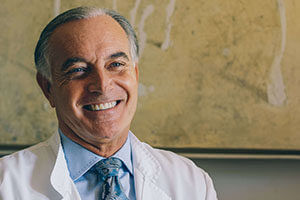Today, the Buchinger Wilhelmi clinics can look back on more than 100 years of clinical experience in therapeutic fasting.
This year, four scientific publications have appeared in renowned journals that confirm the positive effects of fasting on high blood pressure, oxidative stress and longevity.
- Improving high blood pressure – “Blood pressure changes in 1610 subjects with and without antihypertensive medication during long-term fasting” Journal of the American Heart Association, 23 November 2020
In our largest study to date with a cohort of 1610 participants, the Buchinger Wilhelmi fasting programme (4-41 days, with an average of 10 days) led to a significant reduction in blood pressure in both patients who were taking medication as well as those who were not. In most cases, patients were able to either stop or cut back their intake of antihypertensive drugs, which often have side effects. Longer fasting periods reduced blood pressure more effectively than shorter ones. The study is a milestone in the recognition of Buchinger Wilhelmi’s fasting programme in the scientific world. - Review about fasting and fasting research – “Unravelling the health effects of fasting: a long road from obesity treatment to healthy life span increase and improved cognition” Annals of Medicine, 13 May 2020
The article provides an overview of therapeutic fasting treatments with their multiple health benefits over the past decades right up to the present day. Whereas in the 1960s and 70s, the zero-calorie diet, an extreme form of fasting, was applied for weeks or even months to reduce weight in extremely obese patients, since the early 21st century, fasting has increasingly been applied to extend the healthy life span. It is equivalent to protection against age-related illnesses such as type 2 diabetes, cardiovascular, degenerative and inflammatory diseases. Short-term and long-term fasting activates autophagy and results in the regeneration of tissue cells and cell structures. It also leads to increased alertness and improves cognitive abilities. The key mechanism is the so-called metabolic switch – the changeover from converting glucose supplied by food to utilizing ketones and the body’s own fat deposits. The article was written in cooperation with Prof. Massimiliano Ruscica and Prof. Cesare Sirtori, lipid experts from the Dyslipidemia Center at Niguarda University Hospital in Milan. - Increasing the antioxidant status 1: – “Influence of Long-Term Fasting on Blood Redox Status in Humans” Antioxidants, 04.06.2020
- Increasing the antioxidant status 2: “Interplay between oxidative damage, the redox status, and metabolic biomarkers during long-term fasting” Food and Chemical Toxicology, 25.08.2020
We examined the effects of a 10-day fast according to the Buchinger Wilhelmi method on the antioxidant status of 109 subjects. Antioxidants neutralize the oxidative stress caused every day by physiological cell respiration, as well as by radiation and all kinds of pollutants, such as pesticides, smoking or drugs. Despite antioxidants no longer being absorbed due to the cessation of food intake as a result of fasting, the total antioxidant capacity in the blood increased during fasting. In addition, the study showed that harmful, oxidative damage to cell components, which consist of lipids – such as membranes – was reduced through fasting. In addition to antioxidant parameters, other metabolic parameters improved, such as LDL-cholesterol, triglycerides, blood glucose and insulin, as well as body weight and waist circumference. At the same time, patients experienced an improvement in their emotional well-being and energy levels. Two publications resulted from our cooperation with Prof. Demetrios Kouretas, head of the toxicological department at the University of Thessaly in Greece.
Further scientific research projects are currently underway and deal with the effects of long-term fasting on muscle function and lipoproteins, which have an influence on cardiovascular diseases.








